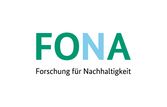© Photos: pxhere.com, unsplash.com/Jonas Jacobsson (fishing net), unsplash.com/Nicholas Doherty (wind farm)
The project ended in December 2023 after almost 5 years of reseach. The main results of the project are summarized in the graphic below. Click play and discover what we found out.
The North Sea is one of the most intensively used marine areas in the world. In addition to fishing, it is energy generation through offshore wind farms, oil and gas production, shipping, agriculture and tourism which play an important role. The consequences of climate change are also becoming increasingly noticeable. Sudden changes in this complex socio-ecological system (SES) can have far-reaching consequences for nature and humans. The processes and interactions determining the vulnerability of the system to tipping points and regime shifts are still poorly understood.
In the SeaUseTip project, the vulnerability of the SES to tipping points is analysed and assessed holistically for the first time using the example of the German North Sea. The analysis will focus on changes in the composition of the fish community.
The interdisciplinary approach combines the considerations of the ecological, economic and socio-cultural subsystems. The insights gained will make a significant contribution to assessing the resilience of the overall system in the face of profound ecological changes. On this basis, strategies for sustainable, ecosystem-based management will be developed.
